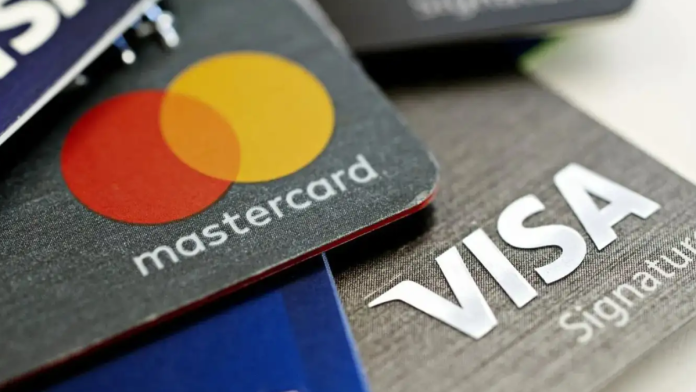Visa and Mastercard have agreed to pay $38 billion to settle a lawsuit that has lasted more than 20 years, aiming to resolve claims that they and several major banks unfairly inflated credit card processing fees for merchants across the United States.
These charges, known as swipe fees or interchange fees, are paid by stores every time a customer uses a credit card to make a purchase. Merchants have long argued that the fees are excessive and that Visa and Mastercard use their market dominance to keep costs high and block competition.
The agreement follows an earlier $30 billion proposal that was rejected in June 2024 by Judge Margo Brodie of the U.S. District Court in Brooklyn. The judge called the previous offer “paltry,” saying it did not address the root cause of the issue and failed to provide adequate relief to businesses. The new deal, which increases the amount by $8 billion, attempts to meet the court’s concerns. However, merchant and retail trade groups argue that the new plan still leaves too much power in the hands of the card companies.
Understanding what swipe fees mean for businesses
Swipe fees are small charges, typically between 2% and 2.5% of each transaction. These fees are shared among the card network, the issuing bank, and the payment processor. While each payment may seem minor, the costs add up quickly for retailers handling large volumes of card payments.
In 2024, U.S. merchants paid a total of $111.2 billion in swipe fees, up from $100.8 billion in 2023 — nearly four times higher than in 2009. Many businesses say these rising fees eat into profits and often force them to raise prices to stay competitive.
The new settlement requires Visa and Mastercard to cut swipe fees by 0.1 percentage point for five years and allows merchants to choose which types of cards to accept, such as standard consumer, commercial, or premium rewards cards. Fees for standard consumer cards will be capped at 1.25% for eight years, marking a reduction of over 25%.
Merchants will also be allowed to add surcharges of up to 3% on card payments, giving them more room to manage costs, especially for small businesses with tight margins. Visa said the deal provides “meaningful relief” for all merchants, while Mastercard emphasized that the new structure particularly benefits smaller retailers.
Beijing blinks first — China suspends sanctions on Hanwha’s U.S. firms after Trump-Xi trade truce
Merchants say deal still favors card networks
Many merchant and retail groups remain dissatisfied with the $38 billion settlement, saying it fails to fix the root problem — that Visa and Mastercard still control how much businesses pay to process card transactions.
A major concern is the long-standing “Honor All Cards” rule, which requires stores to accept every Visa or Mastercard card if they choose to take any at all. This prevents merchants from refusing high-fee premium or rewards cards that cost more to process.
Although the new settlement claims to give merchants more choice, critics say those changes are too narrow and still keep businesses tied to card network rules.
Merchant associations also argue that the deal does not end “anti-steering” rules, which stop stores from encouraging customers to use cheaper payment methods such as debit or cash. Without that flexibility, they say, businesses will continue to face high costs with little power to negotiate.
Hungary escapes U.S. sanctions — Trump approves Russian energy exemption for one year
Industry reaction and what happens next
The Electronic Payments Coalition, representing major banks and card issuers, supports the $38 billion settlement, saying it offers lasting fee cuts and avoids government regulation. A Senate bill to cap card fees has faced opposition from banks, which claim this deal achieves similar results without new laws.
Supporters say the agreement brings consistency nationwide, but merchant groups remain opposed, arguing it limits competition and prevents direct talks with banks. Economists estimate it could save merchants $38 billion by 2031, though critics doubt those savings.
Visa and Mastercard have not admitted wrongdoing, and their shares were largely unchanged. The case now returns to Judge Margo Brodie’s court in Brooklyn for approval and could become one of the largest antitrust settlements in U.S. history.


